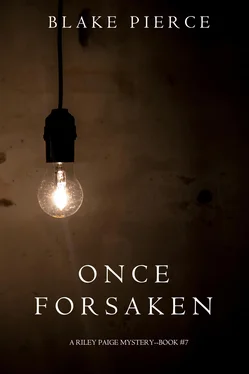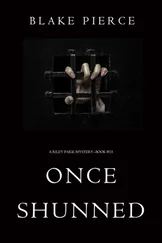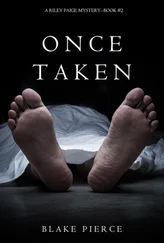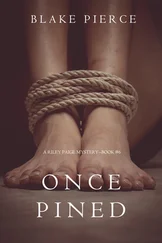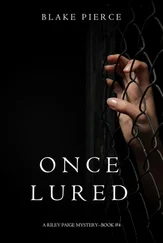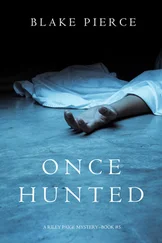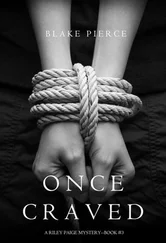“Mom, I think I’ve proved it!” she said excitedly. “It couldn’t have been anything but murder!”
April sat down beside Riley and showed her some numbers that she’d written down.
“I did a little research online,” she said. “I found out that about seven point five college students commit suicide out of one hundred thousand. That’s point zero zero seven five percent. But there are only about seven hundred students at Byars, and three of them are supposed to have killed themselves in the last few months. That’s about point four three percent—which is fifty-seven times the average! It’s just impossible!”
Riley’s heart sank. She appreciated that April was putting so much thought into this. It seemed very mature of her.
“April, I’m sure your math is just fine, but …”
“But what?”
Riley shook her head. “It doesn’t prove anything at all.”
April’s eyes widened with disbelief.
“What do you mean, it doesn’t prove anything?”
“In statistics, there are things called outliers. They’re exceptions to the rules, they go against the averages. It’s like the last case I worked on—the poisoner, remember? Most serial killers are men, but that was a woman. And most killers like to watch their victims die, but she just didn’t care. It’s the same thing here. It’s no surprise that there are some colleges where more students commit suicide than the average.”
April stared at her and said nothing.
“April, I just talked to the medical examiner who did the autopsy. She’s sure that Lois’s death was a suicide. And she knows her job. She’s an expert. We have to trust her judgment.”
April’s face was tight with anger.
“I don’t see why you can’t trust my judgment just this once.”
Then she stormed away and went upstairs.
At least she’s sure she knows what happened, she thought with a groan.
That was more than Riley could say for herself.
Her instincts still told her nothing at all.
It was happening all over again.
The monster named Peterson held April captive somewhere just ahead.
Riley struggled and searched through the dark. Each step seemed slow and cumbersome, but she knew she had to hurry.
With her shotgun slung over her shoulder, Riley stumbled in the dark down a sharp, muddy slope toward a river. Suddenly she saw them. Peterson was standing ankle-deep in the water. Just a few feet from him, April was half submerged in the water, bound by her hands and feet.
Riley reached for her shotgun, but Peterson raised a pistol and pointed it directly at April.
“Don’t even think about it,” Peterson yelled. “One move and it’s over.”
Riley was seized with horror. If she even raised her shotgun, Peterson would kill April before she could fire.
She put the shotgun on the ground.
The terror on her daughter’s face would haunt her forever …
Riley stopped running and bent over, gasping.
It was early morning, and she had gone out for a run. But the horrible memory had stopped her dead in her tracks.
Would she ever forget that terrible moment?
Would she ever stop feeling guilty for putting April in deadly danger?
No, she thought. And that’s as it should be. I must never forget.
She inhaled and exhaled the sharp, cold air until she felt steadier. Then she started walking along the familiar woodland trail. Pale early-morning daylight was filtering through the trees.
This city park trail was close to home and easy to get to. Riley often ran here in the mornings. The exertion was usually good for driving ghosts and demons of past cases from her mind. But today it was having the opposite effect.
All that had happened yesterday—the visit to the Penningtons’, the peek into the garage, and April’s anger at Riley—had brought back floods of ugly memories.
And all because of me, Riley thought, quickening her pace into a jog.
But then she remembered what had happened next in that river.
Peterson’s gun jammed, and Riley shoved a knife between his ribs, only to stagger and fall into the cold water. Wounded, Peterson still managed to hold Riley under.
Then she saw April, wrists and feet still bound, raise the shotgun that Riley had dropped. She heard it crack against Peterson’s head.
But the monster turned and charged April. He shoved her face down in the water.
Her daughter was going to drown.
Riley found a sharp rock.
She lunged at Peterson, smashing it into his head.
He fell, and she leaped on top of him.
She smashed the rock into Peterson’s face over and over again.
The river darkened with blood.
Stirred by the memory, Riley ran faster.
She was proud of her daughter. April had shown courage and resourcefulness on that terrible day. She had been brave in other dangerous situations too.
But now April was angry with Riley.
And Riley couldn’t help but wonder if it was with good reason.
*
Riley felt doubly out of place at Lois Pennington’s church funeral service late that afternoon.
For one thing, she’d seldom gone to church over the years. Her father had been a hardened ex-Marine who never believed in anything or anyone but himself. She’d lived with an aunt and uncle during some of her childhood and teen years, and they’d tried to get her to go to church, but Riley had been too rebellious.
As far as funerals were concerned, Riley simply hated them. She’d seen too much of the brutal reality of death during her two decades in law enforcement, so as far as she was concerned, funerals were simply phony. They always made death seem so clean and peaceful.
The whole thing is misleading, she kept thinking. This girl had died violently, whether at her own hands or someone else’s.
But April had insisted on coming, and Riley couldn’t let her face this by herself. Which seemed ironic, because at the moment it was Riley who felt alone. She was sitting next to the aisle in the back row of the crowded sanctuary. April was up near the front, sitting in the row right behind the family, as close to Tiffany as she could get. But Riley was glad that April was near her friend, and she didn’t mind sitting by herself.
Sunshine brightened the stained glass windows, and the casket at the front was layered with flowers and several large wreaths. The service was dignified and the choir sang well.
The preacher was droning on now about faith and salvation, assuring everybody that Lois was now in a better place. Riley wasn’t paying attention to his words. She was looking around for telltale clues as to why Lois Pennington had died.
Yesterday she had noticed how Lois’s parents sat slightly apart on their couch, not quite touching. She hadn’t been sure how to read their body language. But now Lester Pennington’s arm was around Eunice’s shoulder in a warm gesture of comfort. The two of them seemed to be perfectly ordinary grieving parents.
If there was anything seriously amiss about the Penningtons as a family, Riley couldn’t see it.
And oddly enough, that made Riley feel distinctly uneasy.
She considered herself a keen observer of human nature. If Lois had really committed suicide, her family life had most likely been troubled. But nothing appeared wrong with them—nothing other than normal grief.
The preacher managed to finish his sermon without once mentioning the supposed cause of Lois’s death.
Then came a series of short, tearful testimonials by friends and relatives. They spoke of grief and happier times, sometimes relating humorous events that evoked sad chuckles from the congregation.
Читать дальше
